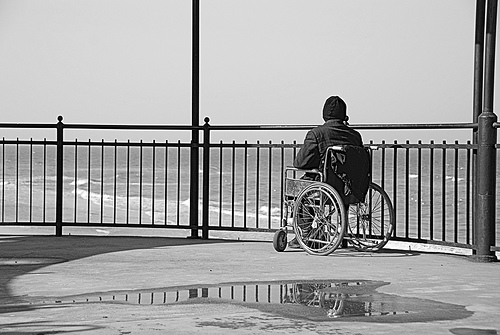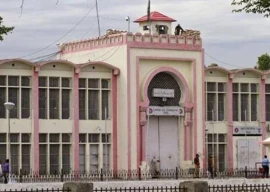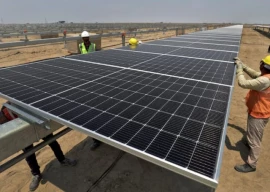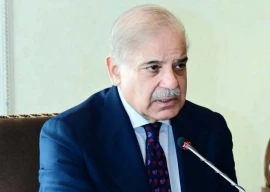
Four countries inked an agreement aimed to empower the region’s disabled women through capacity-building measures.
The signing ceremony for the South Asian Disability and Development Initiative (SADDI) was held on Tuesday at the concluding session of a two-day South Asian Disability Forum Strategic Planning Workshop at a local hotel. It was attended by people with various disabilities from all over South Asia.
Sharing details of the initiative, Special Talent Exchange Programme (STEP) President Atif Sheikh told The Express Tribune that Pakistan, Nepal, Afghanistan and Sri Lanka have signed the initiative.
He said SADDI will be implemented by the South Asian Disability Forum in collaboration with Asia-Pacific Development Centre on Disability, Thailand, the British Council and Comprehensive Health and Education Forum.
He said the secretariat of South Asian Disability Forum will be in Pakistan and STEP will facilitate it.

Recommendations
Recommendation made during the workshop included strengthening the capacity of women with disabilities through leadership training conducted by local and international partners in the four countries.
Talking to The Express Tribune, Amina Azimi, manager of the Afghan Landmine Survivors’ Organisation, who lost a leg to one such explosive device, said the situation for disabled women is almost the same in all South Asian countries.
“A woman born with a disability is considered a matter of shame for the family and they usually keep her in isolation,” she said.
She said in remote areas, these women have to face more hardship and are deprived of their basic rights.
Siriporn Praserdchat, logistics officer at the Asia-Pacific Development Centre on Disability, said there is a need to educate communities on how to deal with disabled persons and educate them about their rights.

“The moment I arrived in Islamabad, I found people staring at me because I do not have hands. This attitude made me feel strange and even deprived,” she said.
Shirin Akhtar, vice chairperson of the Women with Disabilities Development Foundation, Bangladesh, who is visually impaired, said women with disabilities are leading a backward life not only in Pakistan but in all of South Asia.
“It is important that the family recognise the ability of women with disabilities and should not make her feel special, while giving her an equal place in the decision-making process,” she said
Akiie Ninomiya, executive director of the Asia-Pacific Development Centre on Disability, Thailand, said women with disabilities have been facing difficulties in both public and private spheres in obtaining access to adequate housing, health, education, livelihood, social protection and economic development.
“Promotion of gender equality and empowerment of women with disabilities is essential for achieving the internationally agreed development goals,” he said.
Published in The Express Tribune, November 20th, 2013.




1734780406-0/Untitled-(11)1734780406-0-165x106.webp)










1734587529-0/Express-Tribune-(1)1734587529-0-270x192.webp)







COMMENTS
Comments are moderated and generally will be posted if they are on-topic and not abusive.
For more information, please see our Comments FAQ